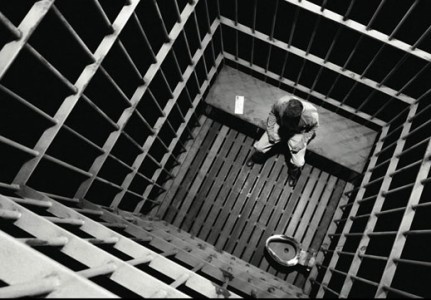
Having experienced solitary confinement and shared conversation with others with similar experience, it is a tactic with perhaps legitimate objectives but applied also broadly in an effort to intimidate and make the subject feel helpless with respect to the prison administration but also prosecutors and law enforcement who may be intent on gaining plea bargains, confessions and other concessions, especially in situations where genuine legal processes and prosecution may be doubtful as to achieving a judgment of guilt. Less chance of guilt more likely to be subjected to such coercive tactics.It is as the UN Special Rapporteur on Torture, Mr. Juan E. Mendez points out a “punishment or extortion technique,” in my opinion, frequently indistinguishable. “Segregation, isolation, separation, cellular, lockdown, Supermax, the hole, Secure Housing Unit (SHU)… whatever the name, solitary confinement should be banned by States as a punishment or extortion technique,” Mr. Mendez’s statement to the UN General Assembly.
Definition of Solitary Confinement:
“Solitary confinement is a harsh measure which is contrary to rehabilitation, the aim of the penitentiary system,” the rights expert stressed presenting his first interim report* to the General Assembly. In it, he examines the practice of solitary confinement “which is global in nature and subject to widespread abuse.” There is no universal definition for solitary confinement because the degree of social isolation varies with different practices. However, for the Special Rapporteur, it is “any regime where an inmate is held in isolation from others (except guards) for at least twenty-two hours a day.”
Objective: Social Isolation:
“Social isolation is one of the harmful elements of solitary confinement and its main objective. It reduces meaningful social contact to an absolute minimum,” Mr. Méndez said. “A significant number of individuals will experience serious health problems regardless of the specific conditions of time, place, and pre-existing personal factors”. “Indefinite and prolonged solitary confinement, in excess of fifteen days, should also be subject to an absolute prohibition,” the expert said noting that scientific studies have established that some lasting mental damage is caused after a few days of social isolation.
Pre-Trial Detention Isolation:
The Special Rapporteur also called for an end to the practice of solitary confinement in pre-trial detention based solely on the seriousness of the offense alleged, as well as a complete ban on its use for juveniles and persons with mental disabilities. “Considering the severe mental pain or suffering solitary confinement may cause,” Mr. Méndez warned, “it can amount to torture or cruel, inhuman or degrading treatment or punishment when used as a punishment, during pretrial detention, indefinitely or for a prolonged period, for persons with mental disabilities or juveniles.”
Solitary confinement for shorter terms or for legitimate disciplinary reasons can also amount to cruel, inhuman or degrading treatment or punishment where the physical conditions of prison regime (sanitation, access to food and water) fail to respect the inherent dignity of the human person and cause severe mental and physical pain or suffering.
“Solitary confinement should be used only in very exceptional circumstances, for as short a time as possible,” the independent expert emphasized. “In the exceptional circumstances in which its use is legitimate, procedural safeguards must be followed. I urge States to apply a set of guiding principles when using solitary confinement.” In his view, “States should also follow internal and external safeguards in order to provide the greatest possible protection of the rights of detained individuals when solitary confinement is used.”
Safeguards would be certainly positive. However, I have experienced US Federal judges stating in pre-trial hearings that they would not counter such imposition of solitary confinement/isolation and other elements of prison administration, in part because they did not believe the detention center would obey the Court’s order. It was to me at the time an astounding admission of disrespect for the rule of law as well as the US Constitution. I have no doubt that the consequence of isolation/solitary confinement is part of the guerilla legal tactics’ employed with respect to those detained. Those in isolation have less/no access to law library material or legal counsel. Their lawyers are also subjected to extraordinary and at times intimidating measures. The impact of isolation though varies by individual with some detained succumbing to dehumanization while others may gain confidence and will to resist the pressure. The “hole” as we called it though was most effective as a “threat” or extortive measure held over detainees/prisoners as form of discipline or intimidation to coerce confessions/plea bargains.
Regardless of potential success, I commend Mr. Mendez for initiating an investigation of such practices which stain both human rights and the rule of law.
Related ARTICLE – “US Blocking Access to Detainees” -
diplomaticallyincorrect.org/films/blog_post/us-blocking-access-to-detainees-by-ambassador-mo/31591
By Ambassador Muhamed Sacirbey
Facebook Become a Fan at “Diplomatically Incorrect”
Twitter – Follow at DiplomaticallyX
Related Reports – “War Crimes Justice” Channel -
diplomaticallyincorrect.org/c/war-crimes-justice

